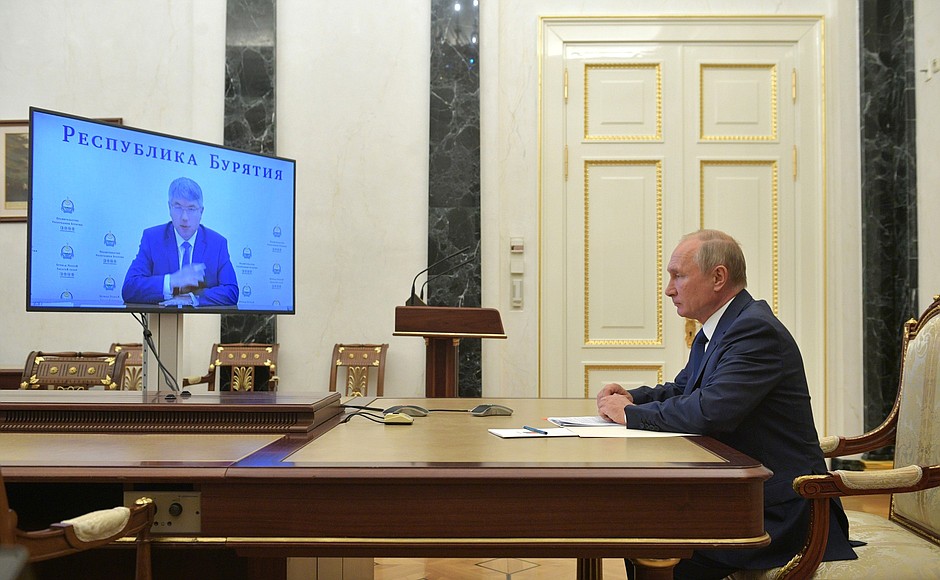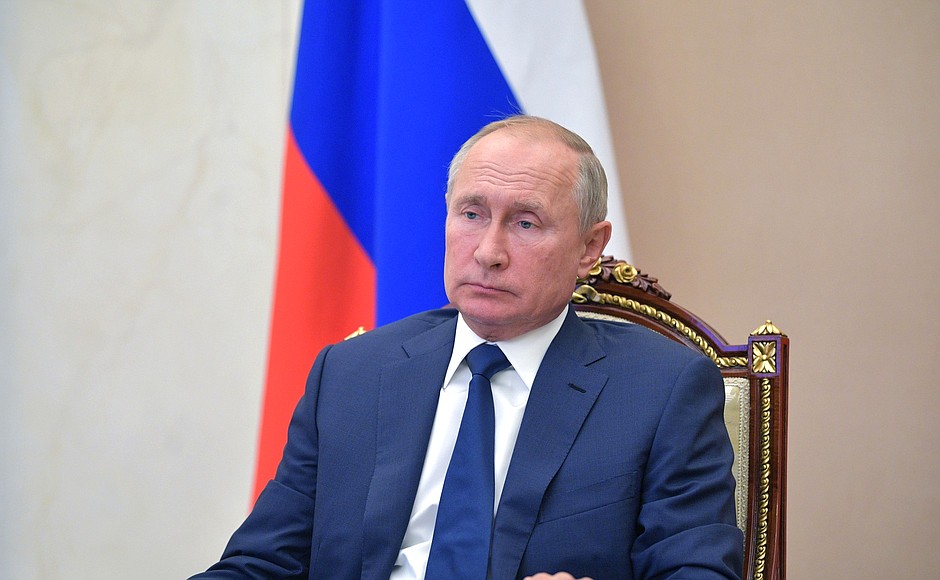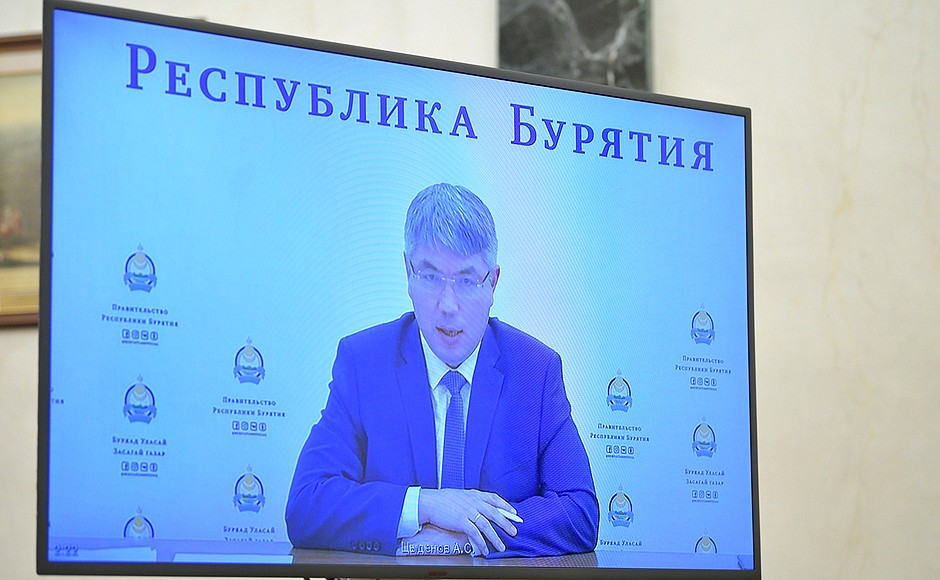At the beginning of the meeting, Alexei Tsydenov thanked the President for his unwavering attention to the republic, in particular, protection of Lake Baikal, as well as the decision to include Buryatia in the Far Eastern Federal District, which significantly improved the social sphere, the economy and business support due to the tools that are available in the Far Eastern Federal District.
Mr Tsydenov said that the situation in the republic is challenging only in terms of the coronavirus, but is quite stable in terms of the economy. The measures to support business taken by the Government brought positive results.
The Head of Buryatia also touched upon several issues of concern for the republic. The first was the construction of a protective dam in the city of Ulan-Ude, which stands on the Selenga River, the main tributary of Lake Baikal. There has been a rather critical rise in water over the past two years, which is fraught with major damage. Mr Tsydenov asked the President to issue a directive to review this matter as part of the Environment national project in conjunction with the Government.
The second issue also concerned the environment and stems from the fact that 96 percent of the catchment area of Lake Baikal comes from the territory of Buryatia, since all the rivers flowing into Baikal come from there. Thus, 21 out of 35 wastewater treatment plants require fairly prompt action. There is also a need for a presidential directive in order to work through this issue as part of the Environment national project in conjunction with the Government.
Mass transit, which is part of the Safe and High-Quality Roads national project, is the third critical issue for the republic. There is almost no municipal bus service available in the wake of the bad decisions made in the 1990s and early 2000s.
Vladimir Putin noted that these issues are important and corresponding instructions will be issued to the Government.
The President also noted that investment in fixed assets has been significantly up in Buryatia over the past 18–24 months, more than the national average, and wanted to know more about the projects that are behind this growth.
Mr Tsydenov said these projects are primarily operated by natural monopolies, such as Russian Railways, Rosatom and Rostec. However, companies that are not associated with vertically integrated holdings or the public sector, such as a pulp and cardboard mill, also made investments. He pointed out that this increase in investment comes mainly from acting upon presidential orders.
Vladimir Putin noted the declining volume of construction in Buryatia and said that the Head of the republic must personally monitor this sphere, as well as individual incomes. It is also necessary to pay attention to the structurally unsafe housing stock and educational infrastructure.
Mr Tsydenov updated the President about the efforts to overcome problems in these spheres, noting that some difficulties with schools and kindergartens stem from high birth rates in the republic. With regard to construction, mortgage loans are on the rise due to Far Eastern loans and easy-term mortgage lending programmes.
The President also noted positive trends in the republic’s demography due to the high natural growth of the population. According to him, this is an integrated indicator showing that, overall, people believe that the situation will improve. Vladimir Putin said he would review the documents submitted by Tsydenov and would take appropriate action.


